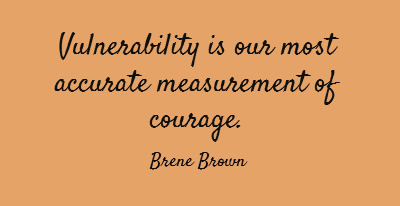Before we get to the Best of Erik post, I want to announce that there will be no radio show this week because Kim is camping with her kids. We’re on for the following week!
I’d like to ask you guys to please send prayers and healing energy to Raylene. She tripped over her dog and tore her hip labrum. She’s scheduled for surgery this coming Thursday and is in a lot of pain. Needless to say, the monthly Q & A will be a bit delayed. I hope you guys understand.
Please pray for the United States and the Asian countries in the region for the intensifying threat of a nuclear attack by North Korea. I don’t get it. Why does Kim Jong Un hate America so much? It’s ridiculous, childish and dangerous. He’s playing with fire, and I don’t think he’ll be alive by the end of the year. We’ll definitely have to interview the little prick after he dies.
We’re headed for Lubbock, TX now, and we really enjoyed our stay at the brand new campgrounds just outside of Albuquerque. It has a beautiful casino with theaters and five restaurant and an amazing pool for the campers. Check it out:
Kristina, Houston, and their two adorable dogs are on a flight to Houston. They close on their house the 9th and move in the 12th.
One more thing: I accidentally posted the same video in yesterday’s post, but I corrected it. Go back and click on the video entitled, “Flash Flood” to see the amazing force of Mother Nature!
Enjoy today’s post!
Me: We talked about vulnerability, like vulnerability toward others—being vulnerable toward the external—society, other people, etc. But we didn’t talk about other forms of vulnerability. For example, in my case, it’s really hard for me to share my troubles with anybody for other reasons—not because I’m ashamed, but because I don’t want anyone to have to be my caretaker. I don’t want to disturb the peace because my role has always been the caretaker and the peacemaker, and I don’t want to burden others with the roles that I’m supposed to cover. So, it’s not about shame or embarrassment. It’s another type of vulnerability. It’s a fear of burdening so I close myself up. I hide that part of me like an animal keeps their belly from being exposed.
Erik: Yeah, yeah. It’s like you worry that somebody’s gonna feel responsible for you.
Me: Right. So, how do you talk about that in terms of f-d up vulnerability, as you call it?
Jamie laughs.
Erik: Look at you naturally bleeping yourself out!
Me (sighing): I know.
To please him, I repeat my sentence with no censuring.
Erik: Thank you.
Me: Happy now?
Erik: Yes.
Me: I just don’t want to be on Santa’s naughty list. It’s just so close to Christmas.
Erik: The thing is, once you’re aware of the reasons why you’re holding back, then you need to be able to let yourself put it to words and share it with other people. “Hey, I’m going to tell you this, but I’m not asking you to do anything for me. I don’t want you to be responsible for me. Your reaction is your reaction. It’s not necessarily what I’m looking for, but I want to be able to talk about it.” That’s the cool thing. When you can identify how you’re feeling or what shit you’re going through, you can actually just put it down on the table and people understand. Like so many people are scared to speak up, because they don’t want to offend somebody.
Me: Mm hm.
Erik: And so, um, but if you came in and said, “So, listen, I really don’t wanna offend you, and I’m really worried that it will, but I just want you to know that I’m not coming from that place. I just don’t know what other words to use.” And then totally lay it down. The person’s not going to take offense. It’s amazing.
Me: Okay.
Erik: AMAZING!
Jamie giggles.
Me: Well, you don’t want to burden them. It’s not just about offending them; you don’t want to burden them, at least in my specific case. I’m afraid if I bring my problems up, they’ll feel obliged to help, then I feel guilty.
Erik: You just throw down. You tell them exactly what you’re looking at and what you’re not interested in.
Me: Okay. Also, what about inner vulnerability?
Erik: What do you mean?
Me (Choking on my words): Well like—I’m going to start crying, of course—the fear of confronting unfathomable inner pain. This is why I can’t, you know, it’s really always been hard for me to sob—to just let it all out. I just stifle my crying and hold it back until my throat hurts so bad because I’m afraid it’d be like opening up Pandora’s Box and all that pain would never stop coming out—that there would be no end to it. So, that’s what I mean when I say inner vulnerability. A fear of being vulnerable to oneself. Do you get what I mean? I don’t want you to answer this for my specific case. Answer it in general terms so the readers can all learn something. We’re talking about all sorts of vulnerability, and I’m sure a lot of people feel that—that if they open up to themselves, that if they’re vulnerable with themselves, that the pain that wells up won’t end.
Erik (with sadness): Yeah. Especially with the loss of a loved one.
Me (still choked up): Mm hm.
Erik: In looking at it from your viewpoint, your eyes, just as an example—
Jamie: He puts his chin in both of his palms and his elbows on his knees. He goes, “I love you.”
Me (crying): Aw, I love you, too.
Jamie: He says it in, like, a puppy voice. A kid voice.
Erik: The emotional honesty inside, that vulnerability inside, speaking in general, what puts it in lockdown is the fear that you won’t be able to control it. It’s the mystery of “What’s the destination?” “How deep is the hole?” “Where is the end?” You know, there’s just so much mystery, and humans, especially Americans, we don’t have a lot of day-to-day mystery. We know our schedule; we know our routine; we know our salaries; we budget; we have calendars, you know, like we’re prepped and prepared, and so when you go to someone and you say, “I want to do this,” and then the person looks at you, and it could be someone you admire or your therapist and you say you want to know where the end is and they say, “Well, I don’t know.” And you’re like, ”Holy shit! You don’t know? Then what the fuck am I doing?” So the best ways to spiritually, energetically create this, that I call an honest inside—
Jamie: His hand gestures are going from the base of his spine underneath his chin like he’s running up and down his torso—his honest inside.
Erik: It’s that, if you can’t feel that you can do it by yourself, you need to create a contract with somebody else and just say, “Listen, I don’t need you to do anything. I just need you to stay put. Don’t say shit to me. Don’t touch me unless I say, “Come touch me.” Don’t look at me unless I say you can. Whatever the rules are, create ‘em so that you can experience. And a lot of it is, um, what we’re afraid of coming across. But why can’t we use the dark as extremely good therapy? You know, it’s like when you close your eyes or when you go into a meditation, so much more healing occurs than what you could do with your eyes open. Why can’t you sit in a dark room with someone that you know you set this contract up with that when the lights come back on, it’s never to be brought up again?
Me: Hm.
Erik: Because it’s not that kind of attention you need from that person.
Me: Well, I can’t even do it by myself.
Erik: But have you ever thought you can’t do it by yourself because you are by yourself?
Me: Wait. What? Because I am by myself?
Erik: Yeah.
Me: Okay.
Erik: You know, a lot of people can’t climb a mountain unless they have somebody else who’s throwing up the rope and tying it and, you know, creating a structure, but not telling you how to do it. They’re just creating a rope structure for you. You know, as humans, Mom, we’re really not meant to be solo. We’re not designed as hermits. We’re community people, and god, that’s all over the media. I mean, hello, how do you get to Sesame Street?
Jamie and I laugh.
Erik: It’s everywhere. So, our misconception is that, if you’re a friend, you have to have the answers, and that’s such a crock of shit. I don’t know why our media and marketing has set it up that way.
Me: We play up the fact that friends are supposed to fix each other.
Erik: Yeah. Oh, SUCH bullshit. Or that the therapist knows everything. They’ve done the training, so they know it, and all of a sudden they say, “I don’t know. You tell me,” and the shit hits the fan.
Me: Yeah.
Erik: We’re not taught to trust ourselves, and then we create that fear and the mystery that’s there. The mystery is uncomfortable. In other cultures, that mystery is exciting. It also brings a bit of comfort, because they know there’s freedom and flexibility, but fuck, we don’t really get that here.
Me: I know. That’s true. And then it makes it difficult to have somebody there beside me, because I know they might still feel obliged to assume the role of caretaker even though I tell them not to. I’ll always worry that they will, and by listening to me, they are, in part, assuming that role.
Erik: Well, you work on the boundaries that you set with that person.
Me: Exactly. It’s a process, I guess.




